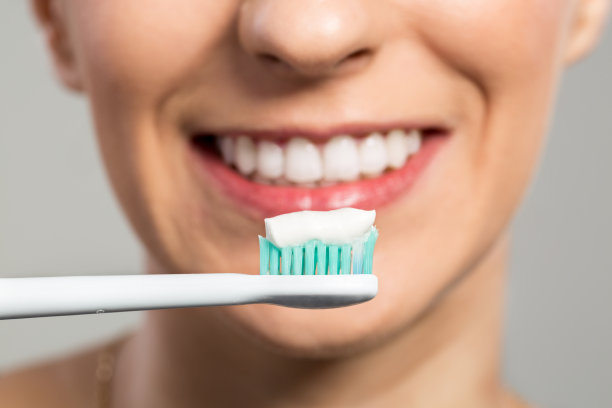Summary: The extraction of a tooth may seem daunting, but it plays a crucial role in improving overall dental health and ensuring long-term well-being. This article explores the vital reasons for tooth extraction, including the management of dental decay, prevention of orthodontic issues, alleviation of gum disease, and its significance for systemic health. Each of these factors highlights the importance of timely intervention and proactive management of oral health. By understanding these aspects, individuals can make informed decisions about their dental care, leading to improved quality of life and happiness.
1. Managing Severe Dental Decay Effectively

Dental decay, commonly known as cavities, can lead to significant pain and infection if left untreated. When a tooth has extensive decay that compromises its structure, extraction becomes a necessary solution. This prevents the infection from spreading to other teeth and surrounding tissues, which can result in more serious health complications.
For many patients, the thought of losing a tooth is terrifying; however, addressing issues of severe decay proactively can save them from more severe dental procedures later on. An extraction allows for the restoration of dental health, paving the way for potential replacements such as implants or bridges, which can restore function and aesthetics.
By extracting decayed teeth, individuals can minimize the risk of further decay and promote better oral health. It is essential that patients consult with their dentist to determine the best course of action when facing severe decay; timely extractions are a key component of effective dental care.
2. Preventing Future Orthodontic Problems
Tooth extraction can also play a significant role in orthodontic treatment. In cases where the dental arch is overcrowded, removing one or more teeth can create the necessary space for proper alignment. This is particularly relevant when diagnosing and treating patients with misaligned teeth or jaw discrepancies.
Orthodontic extractions not only facilitate proper alignment but also help in achieving a balanced bite. A well-aligned bite is essential for optimal function and can prevent numerous future dental problems, such as excessive wear on teeth, jaw pain, and even temporomandibular joint (TMJ) disorders.
In orthodontic evaluation, dental professionals often consider the potential for extractions as part of an overall treatment plan. Patients may find that addressing crowding through extraction ultimately leads to a more aesthetically pleasing smile, increased self-confidence, and improved oral function.
3. Alleviating Gum Disease and Inflammation
Gum disease, or periodontal disease, is a leading cause of tooth loss and can significantly affect overall health. In cases where a tooth is severely infected and the surrounding gum tissue is compromised, extraction may be necessary to eliminate the source of infection and allow for healing. Removing affected teeth helps to alleviate inflammation and enables better care of remaining teeth and gums.
Moreover, extracting teeth that are beyond repair can also reduce bacteria in the mouth, which contributes to the progression of gum disease. By addressing oral infections promptly, patients can lower their risk of developing more serious conditions associated with periodontal issues.
In many cases, extraction is just one step in a comprehensive periodontal treatment plan. After the extraction, dentists can guide patients on oral hygiene practices and possible interventions, such as scaling and root planing, to promote healthy gums and prevent future issues.
4. Impact on Overall Systemic Health
The relationship between oral health and systemic health is increasingly recognized within the medical community. Chronic oral infections, including those stemming from unhealthy teeth or gum disease, can contribute to various systemic health issues, such as cardiovascular disease and diabetes. To safeguard overall health, addressing problematic teeth through extraction can play a preventive role.
Furthermore, infections in the mouth can lead to harmful bacteria entering the bloodstream, which further exacerbates systemic conditions. By opting for tooth extraction when necessary, individuals not only protect their dental health but also invest in their long-term well-being.
It is evident that maintaining optimal oral health requires a holistic approach. By understanding how dental issues can affect the body as a whole, patients are better equipped to discuss extraction options with their dental care provider, ensuring they take proactive steps towards a healthier life.
Summary:
In conclusion, tooth extraction is often a necessary measure for maintaining optimal dental health and ensuring overall well-being. Through effective management of dental decay, prevention of orthodontic issues, alleviation of gum disease, and awareness of the link to systemic health, individuals can achieve sustained oral health and improved life quality. By recognizing these factors, patients are empowered to make informed decisions about their dental care, contributing to long-lasting health and happiness.
This article is compiled by Vickong Dental and the content is for reference only.
Vickong Dental
Vickong Dental is a large medical group established in Hong Kong in 2008 by professors from well-known medical universities in Guangdong and Hong Kong, as well as medical doctors from key national '985' universities (including Master's supervisors and senior professors). The chain of branches brings together expert dentists with PhDs and Master's degrees from Hong Kong and Mainland China, committed to providing high-quality dental treatment.
"Vickong Dental Practices the University Motto of 'Healing and Serving Society,' with a Stable Operation for Sixteen Years. It Has Been honored with Hong Kong Enterprise Leaders's Choice,' and is a Global Trusted Implant Center for the Nobel Implant System. Recommended by Hong Kong Metro Broadcast and Guangdong Television, it Serves Customers from Over Thirty Countries and Regions, Gaining the Trust and Favor of Citizens from the Guangdong-Hong Kong-Macau Greater Bay Area and Surrounding Cities.

Thousands of customers' unanimous praise
The most recognized and highly recommended dental service by customers in the Guangdong-Hong Kong-Macau Greater Bay Area
We Ensure You Receive Detailed Care and Attention Here
Hong Kong standards, Shenzhen prices, Your Trusted English-speaking dentists

Vickong Dental Medical-Grade Instrument Disinfection Process
Vickong Dental Medical-Grade Instrument Disinfection Process

Vickong Dental Chain: A Warm and Comfortable Environment for Treatment






Appointment Hours

Q&A
Why choose Vickong Dental?
Vickong Dental practices the university motto 「Medicine to Benefit Society」, with each branch bringing together highly qualified dentists with doctoral and master’s degrees from Hong Kong and the Mainland, and has maintained seventeen years of steady operation。Recipient of 「2024 Hong Kong Enterprise Leaders Brand」, 「2025 Hong Kong Enterprise Leaders Brand」, a Nobel Biocare Global Trusted Implant Center, and a brand recommended by Metro Radio Hong Kong and Guangdong TV。
To date, we have served customers from more than thirty countries and regions,earning exceptionally high word-of-mouth recognition and trusted recommendations from residents across the Guangdong-Hong Kong-Macao Greater Bay Area and surrounding cities
We have eight major branches in Zhuhai、Shenzhen,and a consultation and service assurance center in Hong Kong,so you can book a free consultation at any time for any questions,which is very reassuring.
If I do not accept the quotation after the CT scan, will I be charged??
No! As long as the actual treatment has not started, you will not be charged any fees.
Will there be any additional charges during the treatment process?
No, there won’t be any additional charges. Before treatment begins, we will clearly explain the treatment plan and its corresponding fees. Only after the patient agrees and signs the consent form will we proceed with the dental service.
Can I pay in Hong Kong dollars?
Yes. Vickong Dental accepts payment in Hong Kong dollars. The amount will be converted based on the exchange rate of the day, and the applicable rate will be clearly communicated to you in advance.
Can I reschedule my appointment at any time?
Yes. Please contact us via **WeChat** or **WhatsApp** as early as possible, providing your original appointment time and details, along with your preferred new date and time slot for rescheduling.













